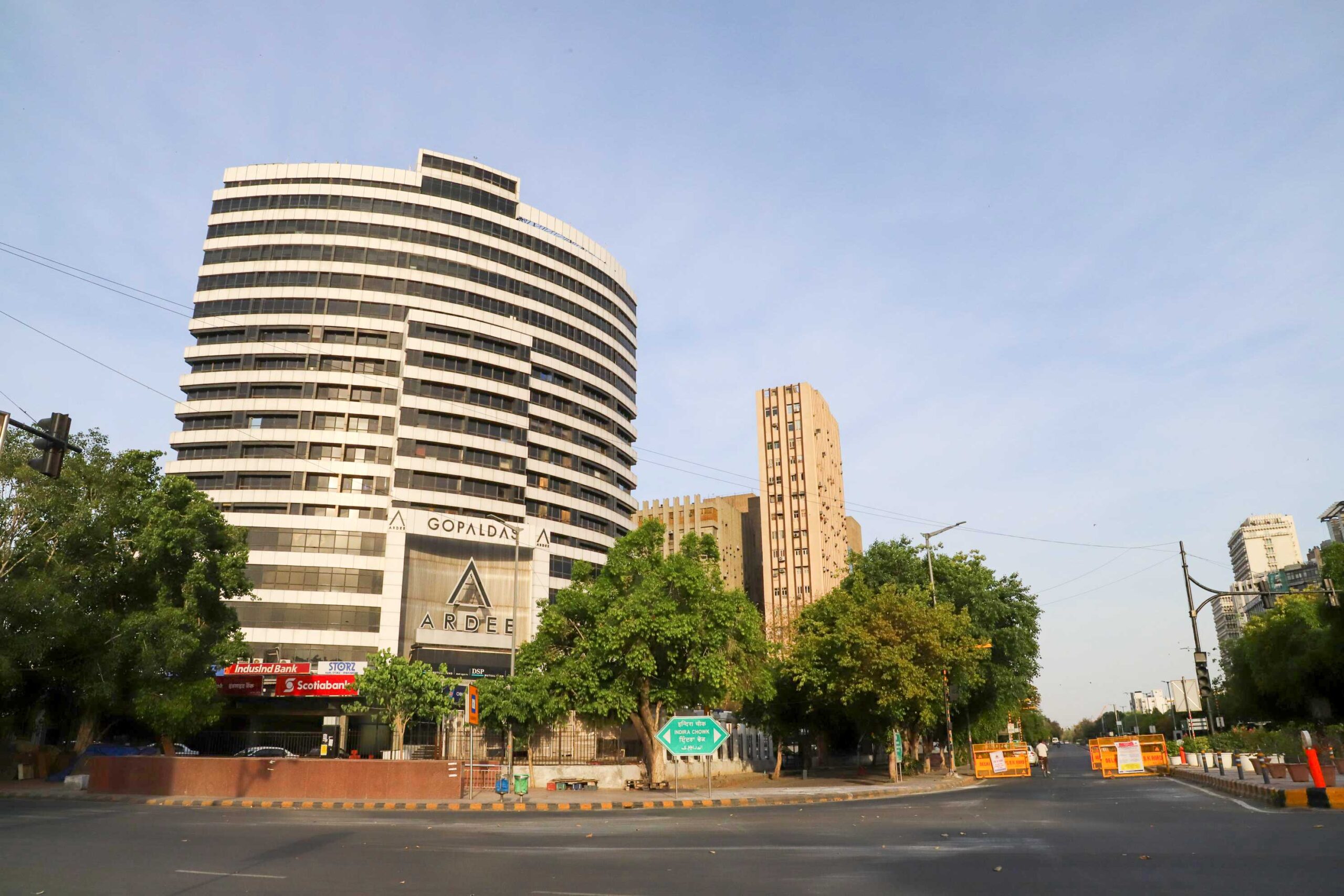Future of Indian real estate business post-pandemic

Office space taken up by startups & smaller companies is facing challenges due to funding & business headwinds post pandemic (MIG photos/Aman Kanojiya)
“In these extraordinary times, stakeholders across sectors have an opportunity to structurally reimagine their strategies to ensure sustained recovery. Doing so would require shifting from traditional approaches and embracing new, transformational methods – which would be accelerated by widespread tech adoption, sustained policy impetus and accelerated investor interest in India,” Anshuman Magazine, chairman & CEO, India, South East Asia, Middle East & Africa, CBRE, tells Media India Group.
In the first three months since its outbreak, pandemic brought construction activities to a halt and significantly eroded its potential buyer-base. With property transactions dipping to near-zero during the nation-wide lockdown between March and June 2020, the realty sector faced its most challenging times ever. The interdependence of supply chains, migration of labourers, cost overruns and liquidity constraints came to fore and emerged as some of the looming challenges.
Given the already despondent situation within many segments of real estate, developers are being advised to reset home prices to spur demand, while some hotels are seeking a change of land use to residential. Office space demand is suddenly shrinking and retail malls are seeing tenants cancelling leases or refusing to pay rent. Moreover, consumers who own a home or who wish to own a home in the near future are also confused.
In the first week of October, Housing.com, a Mumbai based real-estate portal reported that housing sales in India’s eight major cities declined by 66 pc in the period between July-September 2020. However, industry experts say that contrary to fears and low expectations, real estate in the post-Covid world will most likely survive and eventually thrive as an asset class, though it will look different.
“With several macro-economic indicators showing a positive trend in near future, we may well be on the road to a more sustained recovery and the upcoming two-three months will be critical, in determining the growth trajectory in the sector over the next twelve months,” Dhruv Agarwala, CEO, Housing.com, tells Media India Group.
While it is early days yet, there are visible indications of some of the ways in which the pandemic may alter things for both consumers and developers. It is important to note that the winds of change have been triggered not just by the pandemic.
Home becomes a priority
“The Coronavirus spread has surely halted the sales and rapid development. However, the pandemic has also made buyers realise the value of home ownership, thus, giving a sold sentiment boost to residential real estate,” says Agarwala.
In a survey conducted by Housing.com in September this year, 53 pc respondents said they have put their plans to buy a property on hold only for six months and plan to return to the market after that. Nearly 33 pc respondents in the survey also said they would have to upgrade their homes, in order to work from home. In a renters’ survey, 47 pc respondents said they would like to invest in property if it was rightly priced.
“The home will gain more prominence over the place of work and influence urban development and our real estate choices. The good news for India is that the long-term housing demand trend remains secular due to a young population which continues to enter the workforce in large numbers. Over the last few years, there had been a gradual shift in mindset among first-time homebuyers who began to favour a rental home, challenging the established preference of Indians to buy homes,” Agarwala adds.
Shrinking of commercial spaces
Agarwala says that the commercial office sector was the most favoured segment for institutional investors and had reached a peak in terms of pricing prior to the pandemic. The impact on the sector is expected to be severe in view of the reduced space requirement by companies due to increased adoption of work-from-home model which is now becoming an integral part of their long-term strategy.
Further, office space taken up by startups and smaller companies is facing challenges due to funding and business headwinds faced by them. Health and hygiene would take precedence over space efficiencies and offices would be redesigned for the post-Covid world.
“CEOs would look to minimise costs and the most glitzy building in the heart of the commercial district might no longer hold the same appeal. While what shape the office takes will depend on the nature of business and strategy of each company, needless to say, the commercial real estate sector has been nearly shut,” he adds.
Reimagining retail
Post-Covid, demand for retail space would also undergo a change. There will be a preference for common spaces that are open to the sky and have independent access to shops and showrooms, according to the experts.
“Outlet centres in the suburbs with high-street shopping in the city will gain prominence over large format centrally air-conditioned malls. In these newer formats, retail would be centred more around food service, wellness, leisure and entertainment, with a diminished focus on shopping,” Agarwala explains.
In the hospitality sector, due to the mandatory Covid safety protocols and need for social distancing, smaller hotels and properties will be under severe pressure. “Hotels, especially independent properties with less than 20 rooms or assets which had been hurriedly converted into hostels and guest houses would likely see closures and conversion back to residential use,” he adds.
Technology comes to rescue
Pre-Covid, adoption of technology by the real estate developers was limited to listing properties online. During the lockdown, developers came up with offerings, wherein, site visit was done virtually through 3D walk-throughs extending to online documentation support and fulfilment. Developers are now weaving virtual site tours, virtual reality online booking, chatbots and payment platforms into their digital strategy for communication and selling.
“The benefit gained by developers through technology efficiency and disintermediation would inevitably be passed on to the end customer in some measure in the form of price moderation along with easier reach and transparency,” Agarwala explains.
Recovery on the cards
As the nation progressively opening up after the lockdown, the real estate markets have also started to recover. As per several leading research reports, India’s residential real estate market is on the path to a decisive return of serious homebuyer enquiries, which are at 50 pc of the levels before the pandemic in top cities.
Bangalore is leading the nation in terms of real estate recovery, and current enquiries have returned to 70 pc of the January-February period, followed by Gurgaon in Delhi NCR, at 65 pc, according to real estate consultancy firm Liases Foras.
The report further says that luxury homebuyers in India have readily invested in premium properties post coronavirus pandemic. The primary reasons behind this trend are attractive discounts and deferred payment facilities offered by the developers during the pandemic situation. “The premium homebuyers are also investing in banded/high-value plots. The situation is a win-win for both the parties. While the buyers want to own assets, the developers are also keen on monetising their assets quickly,” says Agarwala.










